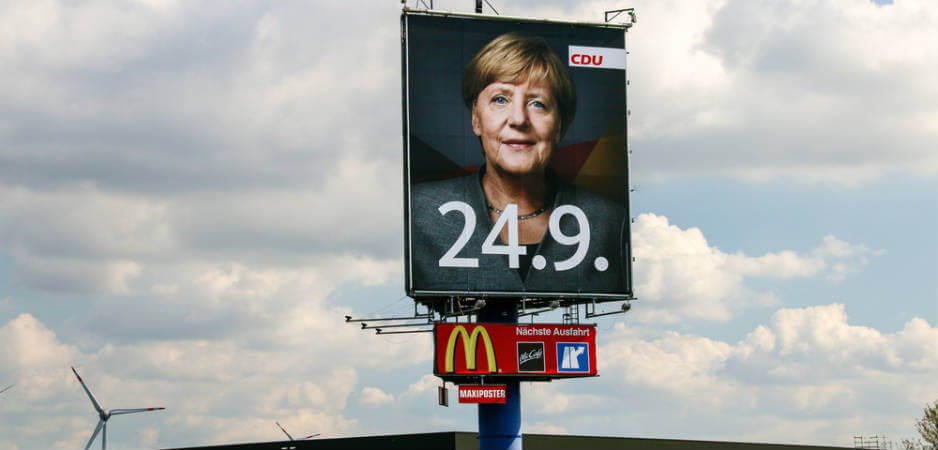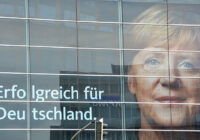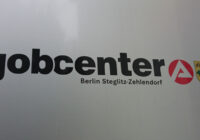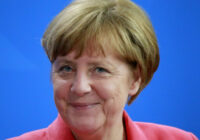Germany’s coalitions talks have been frustrated by months of political deadlock.
Put simply, last September’s general election was a disaster for Germany’s Social Democratic Party (SPD). With Martin Schultz at the helm, the party saw its share of the vote fall from 34.2% in 2005 to a record low of 20.5%. Indeed, the results were so bad that the SPD leader ruled out the formation of another grand coalition (GroKo) with Chancellor Angela Merkel’s Christian Democratic Union (CDU). Yet, four months on from the SPD’s poor showing, Schultz finds himself in a familiar scenario.
That’s because the rank and file of the SPD will decide on January 21 whether to commence formal negotiations for another CDU/CSU-SPD coalition. If both sides agree on a final deal, the SPD must then seek a further endorsement from ordinary party members. The stakes are undoubtedly high, both for ordinary Germans frustrated by months of political deadlock and EU member states yearning for Berlin to play a leading role in the tumultuous years ahead. Yet, there are several alternatives to a new GroKo. All of them present challenges, and none is ideal.
Nightmare Scenarios
Let’s get the most unfeasible option out of the way first — a minority government. This appeals neither to Chancellor Merkel nor President Frank-Walter Steinmeier. Moreover, a recent Infratest dimap opinion poll suggests that only 42% of Germans support a minority administration. It’s a finding that adds credence to the argument that stable governments with an average program are better than weak and volatile regimes that could fall at any point.
Taken at face value, it’s also an assumption that could potentially strengthen the case for the formation of an even “grander” coalition of political parties. Since becoming chancellor, Merkel has gained a reputation for bringing different political factions together — no mean feat given the domestic and international challenges she has faced over the past 12 years. It’s a quality that has also helped her to deflect criticism that the CDU has become very good at swallowing the ideas of its coalition partners because it doesn’t have enough of its own.
That said, a major factor behind Merkel’s efforts to initiate talks with her former SPD partners was last November’s breakdown of the so-called Jamaica coalition negotiations with the Free Democrats (FDP) and the Greens. The failure to reach an agreement was caused in part by the chancellor’s lack of flexibility and fears that her dominance could eat into the junior coalition partners’ votes at later elections. This is precisely why some SPD members are concerned about going into a new grand coalition. It’s also helps to explain why party officials across the political spectrum view the third option with a sense of trepidation.
Same as It Ever Was
Additional polls by Infratest dimap suggest that 54% of Germans would support a fresh round of national elections. Conversely, the same data also reveals that polling would most likely bring exactly the same results as last September, with Germany ending up exactly where it started. The case against prolonging the country’s political deadlock is further strengthened by the popularity that Merkel still commands among the wider electorate. Other opinion polls suggest that 90% of the population regards the chancellor as a source of political stability, with 56% wanting her to remain in charge. Moreover, Merkel’s popularity only fell by a mere 6% in the aftermath of the failed “Jamaica” dialogue.
Despite the growing number of critics inside the CDU, there is neither the support nor enthusiasm for replacing her as party leader. The same is also true of Martin Schultz. Despite vocal opposition from the far left and the Young Socialists, the SPD leader seems poised to rise above last year’s electoral drubbing and take his party into another GroKo. If this happens, Schultz will begin dialogue with the tacit support of SPD moderates that are prepared to risk the loss of more votes at the 2021 general election to influence Germany’s current political landscape. To this end, Schultz might also end up as a minister of foreign affairs.
Weakened but Not Weak
The case for another four years of CDU/CSU-SPD government is further strengthened by Germany’s current economic fortunes. According to Organization for Economy Co-operation and Development data, real gross domestic product rose by 2.3% in 2017. Moreover, Germany currently enjoys a vast budget surplus (€38.4 billion in 2017, or $47 billion) and the lowest level of unemployment since reunification (5.7%). Put another way, the German economy has remained resilient in the face of uncertain political conditions, and economic growth has been helped rather than hindered by the previous grand coalition.
That’s also good news for the EU’s remaining member states that can now expect a stable German government that’s keen to play a leading role in relaunching the European project. Indeed, some of the talking points from preliminary CDU/CSU-SPD meetings suggest an even more pro-European GroKo is on the cards. It’s been suggested that the SPD’s call for a “European awakening” has dominated initial conversations and has shaped the opening pages of the potential coalition’s new agenda.
Yet, there should be no room for complacency. Party politics across Europe is changing, with traditional parties losing ground to new movements. As the overall results of last September’s elections demonstrate, Germany is no exception, particularly when it comes to the left. Unless Germany’s political establishment can stem the tide caused by the likes of the Alternative for Germany (AfD), this might be the last time that Angela Merkel forms a GroKo involving the Social Democrats.
*[GLOBSEC is a partner institution of Fair Observer.]
The views expressed in this article are the author’s own and do not necessarily reflect Fair Observer’s editorial policy.
Photo Credit: Mattis Kaminer / Shutterstock.com
Support Fair Observer
We rely on your support for our independence, diversity and quality.
For more than 10 years, Fair Observer has been free, fair and independent. No billionaire owns us, no advertisers control us. We are a reader-supported nonprofit. Unlike many other publications, we keep our content free for readers regardless of where they live or whether they can afford to pay. We have no paywalls and no ads.
In the post-truth era of fake news, echo chambers and filter bubbles, we publish a plurality of perspectives from around the world. Anyone can publish with us, but everyone goes through a rigorous editorial process. So, you get fact-checked, well-reasoned content instead of noise.
We publish 2,500+ voices from 90+ countries. We also conduct education and training programs
on subjects ranging from digital media and journalism to writing and critical thinking. This
doesn’t come cheap. Servers, editors, trainers and web developers cost
money.
Please consider supporting us on a regular basis as a recurring donor or a
sustaining member.
Will you support FO’s journalism?
We rely on your support for our independence, diversity and quality.







